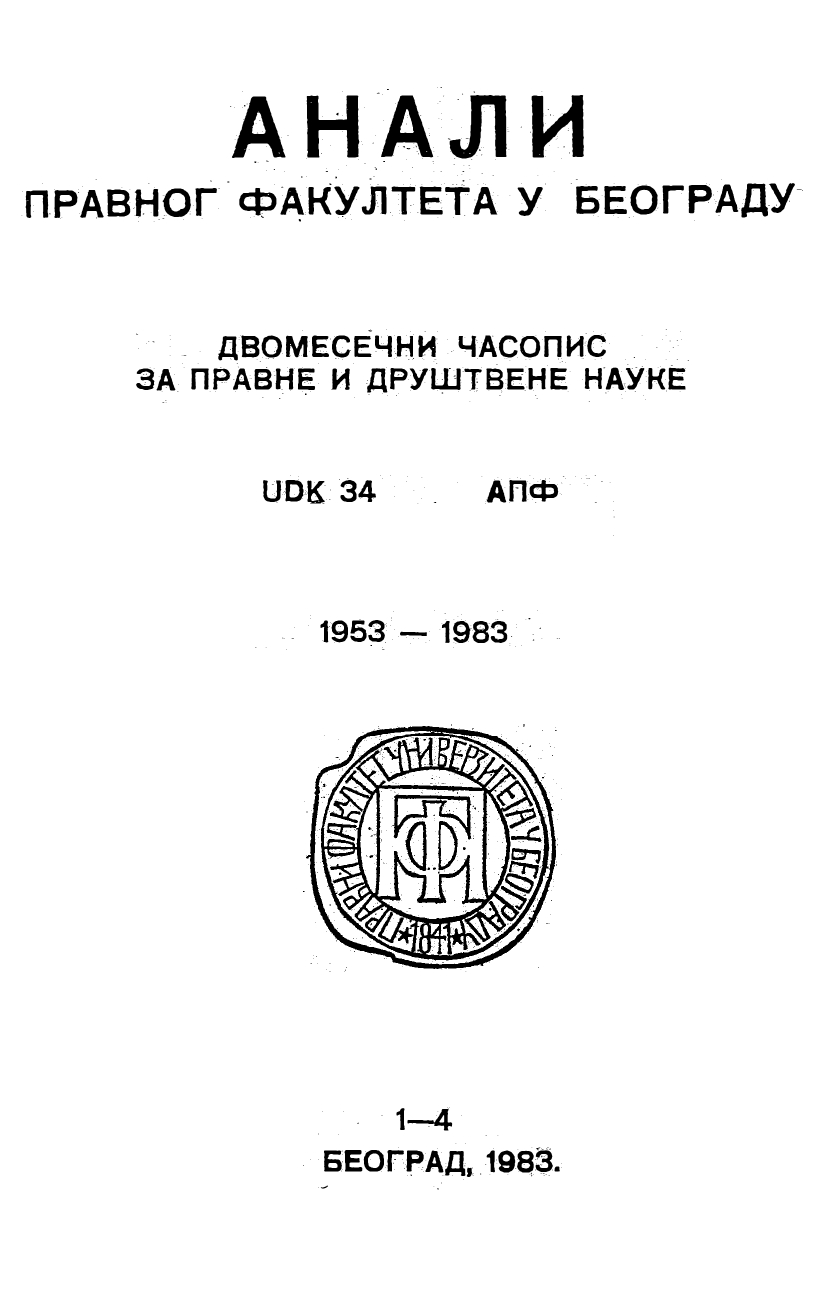УПОРЕДНО ПРАВО У ЛЕГИСЛАТИВНОЈ ДЕЛАТНОСТИ УЈЕДИЊЕНИХ НАЦИЈА
COMPARATIVE LAW WITHIN LEGISLATIVE ACTIVITY OF THE UNITED NATIONS
Author(s): Vida ČokSubject(s): Law, Constitution, Jurisprudence, Comparative Law
Published by: Правни факултет Универзитета у Београду
Summary/Abstract: A considerable part of contemporary international law originates from the United Nations legislative powers. This is how the United Nations proceed with the activity that before their foundation used to be slower, of more limited a scope and providing less results. Comparative law is nowadays taken as one of the important factors to change such state of affairs. When viewed from the legislative process within the United Nations, current international law often proves to be strongly influenced by respective solutions belonging to given legal systems of member states. The phenomenon cannot be denoted merely as a reception of current legal institutions, but primarily as a specific procedure aimed at taking a closer insight into comparative law instead, thus finding out the solutions approved as the best by as great a number of member states as possible. The author has therefore confined himself to examining this process of „searching for” adequate domestic legal rules, first with respect to drafting international legal rules and then to their implementation. The up to now carried out practice within the United Nations proves that the drafting process is proceded by that of gathering information on domestic legislation, the data processing, however, often being reduced to an informative level only. The similar is the case with the phase of treating implementation of enacted international legal rules. On the other hand, it is hardly arguable that comparative law plays a prominent role in the United Nations legislative activity. The former is a somewhat „invisible” part of that activity and it is quite obvious that the international legislator has not yet made most of ist potentials. Such procedure need not be taken as irreconcilable with the sovereignty of member states, because it is comparative law that makes a given legal rule of domestic law „denationalized” within the United Nations legislative procedure, even before the given domestic legal rule shall attain an international legal relevance. Besides, when utilizing the comparative law results, the United Nations are in a position simultaneously to draft a new international legal rule and to have indirectly prepared the necessary prerequisites for its effective implementation. This is how comparative law significantly contributes to carrying out one of the basic objectives of any organ (domestic or international, whatsoever) vested with legislative powers.
Journal: Анали Правног факултета у Београду
- Issue Year: 31/1983
- Issue No: 1-4
- Page Range: 744-755
- Page Count: 12
- Language: Serbian

